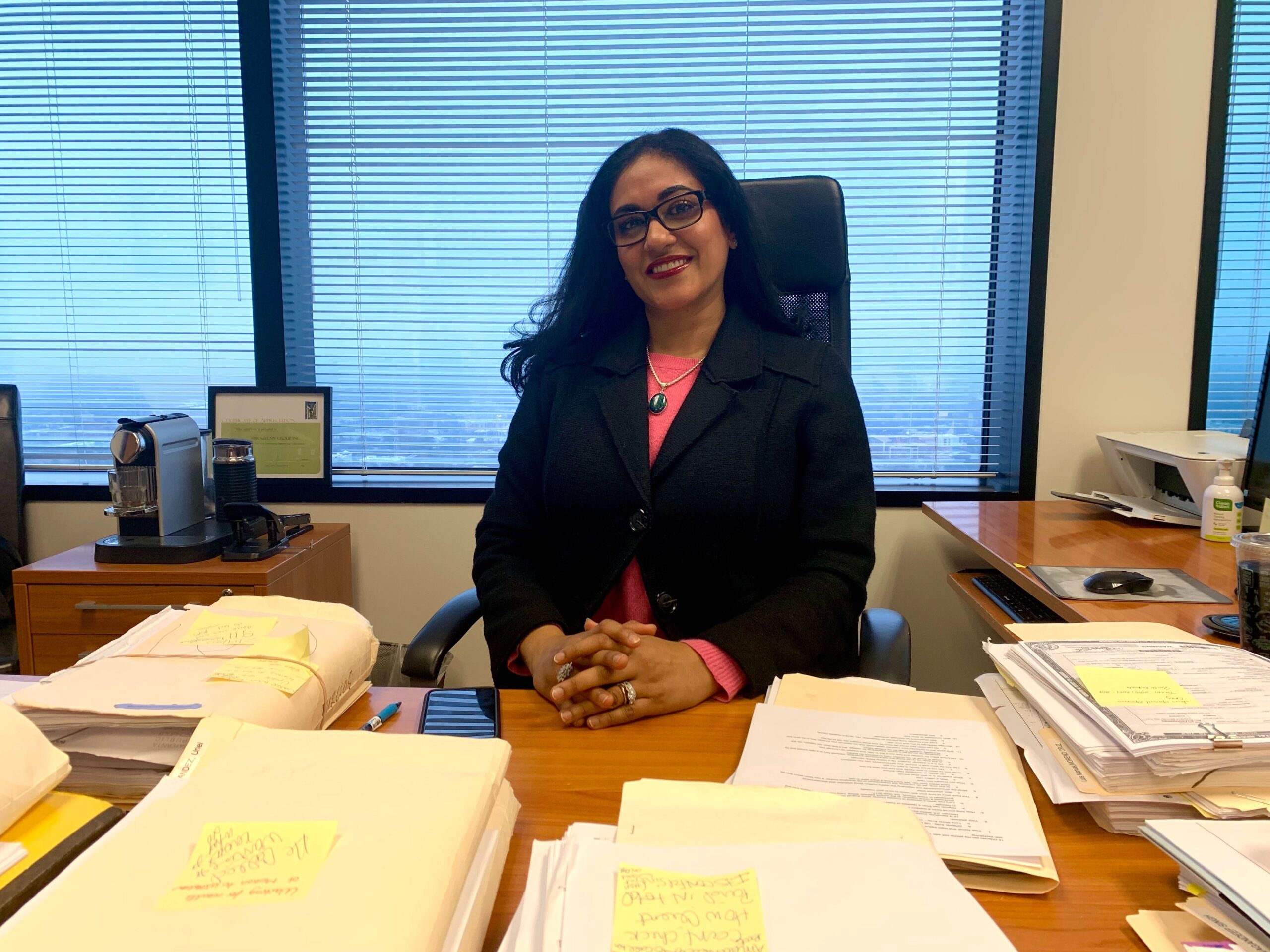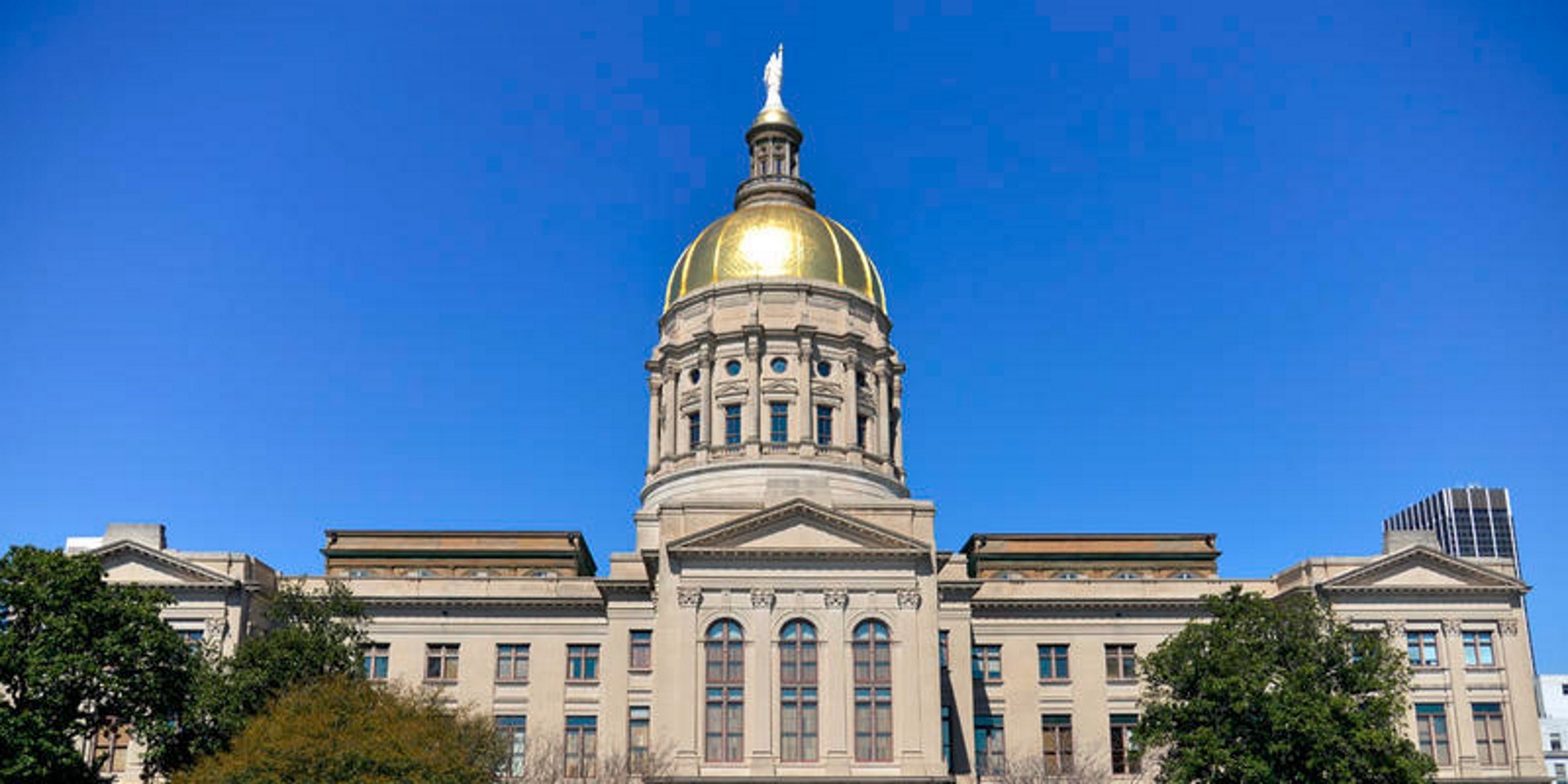Immigrants Who Rely On Public Benefits May Be Denied Green Cards, Visas. Atlanta Attorney Weighs In

Atlanta immigration attorney Amna Shirazi shares how the new public charge ruling will impact Atlanta’s immigrant community.
Lily Oppenheimer / WABE
The Trump administration’s controversial public charge rule went into effect Feb. 24 after being challenged by multiple lawsuits filed by immigration advocates nationwide.
It requires immigrants applying for admission into the U.S., or for adjustment of status, to prove that they will not become a burden on the system, or a “public charge.”
Now, Atlanta immigrants who need public benefits like food stamps, housing vouchers, Supplemental Social Security Income and Medicaid are at a greater risk of being denied green cards, visa petitions or even being deported.
Officers will review whether individuals have received public assistance for more than a year within the previous three years, according to U.S. Citizenship and Immigration Services. USCIS cites that self-sufficiency has long been a basic principle of U.S. immigration law.
But critics like Atlanta immigration attorney Amna Shirazi call the public charge rule a “war against the poor,” or essentially a wealth test.
“Morning Edition” host Lisa Rayam sat down with Shirazi to discuss what this means for Atlanta’s sizable immigrant population and how this ruling also affects U.S. citizens on federal assistance trying to sponsor relatives.
You can also share your experiences with WABE. How has public charge affected you?
Public charge is a ground of inadmissibility, according to the Immigration Legal Resource Center. Grounds of inadmissibility are reasons that a person’s petition could be denied. It does not apply to everyone, notably refugees, asylees, petitioners under the federal Violence Against Women Act and certain T and U visa applicants.
WABE: Do you stand with critics who say this is a war against the poor?
Shirazi: I do, and many attorneys feel that’s the case. What this does is it makes people of lower income really personally affected by this. And the family-based petitions are the worst. That is where the most damage is going to be done. Because people of lower income are going to have a hard time on both sides – the petitioning side and the beneficiary side — to show that the public charge issue is satisfied.
How will this impact the Atlanta community?
Atlanta has a large immigrant population. If the petitioner is not someone who has a high level of education or income, it’s very likely that their parent or spouse also does not have a high level of education or income. So it’s going to be more difficult for U.S. citizens to bring over relatives that they’re legally allowed to bring. But because there’s this new public charge analysis, it’s going to be harder for them to bring those relatives over, even though they’re legally allowed to do so.
What do you say to those who are feeling helpless at this point?
To be honest, legal experts feel, to some degree, helpless. Just from a legal analysis standpoint, the level of abuse of power that can occur, because of the generality of the public charge rule, I’m very surprised that the U.S. Supreme Court didn’t strike it down. Just from a legal perspective, there’s no true definition of what a public charge is. It’s putting a lot of power into the hands of a USCIS officer to make their own discretionary findings. And that makes it so that not everyone is going to be treated equally depending on the officer their case is assigned to.
What can immigrants do at this point that may be affected by this?
There’s a lot of talk about whether or not people should keep their U.S. citizen-family members, kids in this case, on federal or state aid. They are legally allowed to access that federal and state aid. But as legal experts, we feel that they probably are going to take a look at it.
I’m of the mindset that if there’s any way to get off those federal or state programs without you becoming homeless, or not being able to provide badly needed health care, then I am going to be recommending to get off those programs. Because even though they’re not supposed to be looking for those issues [for U.S. citizens sponsoring family members] we think that they will.








